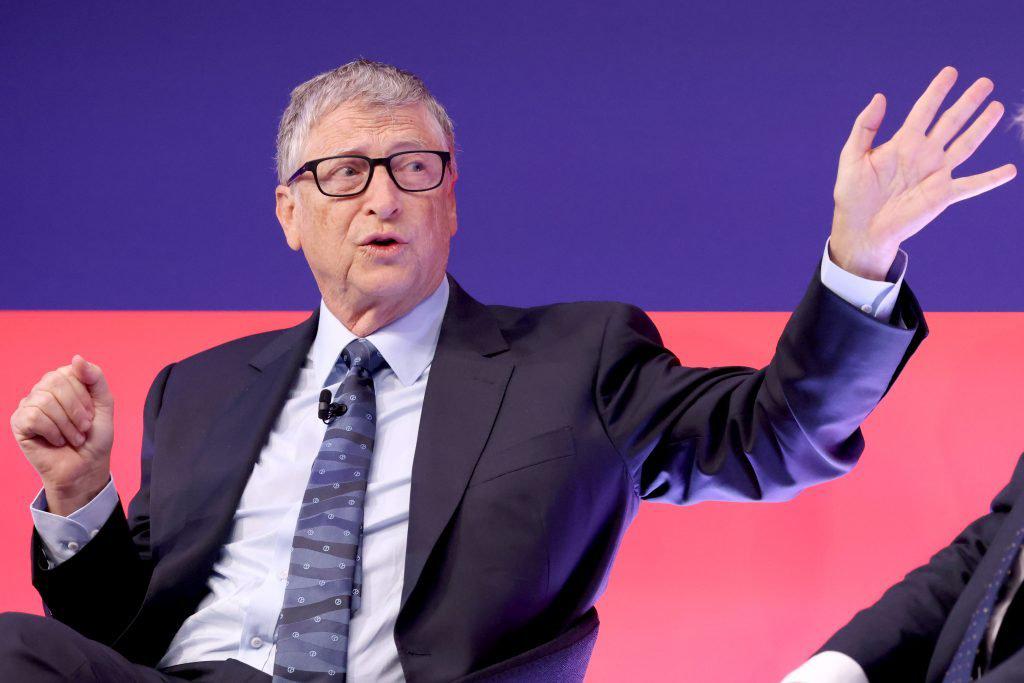In 1995, Bill Gates, then CEO of one of the world's most successful companies, made bold predictions about the future we live in now. Most of these predictions were astounding in their accuracy, though some were completely unfounded. In the new book that will be published next year, he looks back at those predictions, evaluates his predictions, and looks ahead to what's next.
Bill Gates predicted Netflix, iPhones and Facebook 26 years ago
Here are some of Gates' most amazing predictions from 1995:
1. He predicted almost exactly about smartphones: "I was obsessively thinking and learning about these things back then," Gates writes in a new blog post, which looks back at his 1995 book, The Road Ahead. This effort paid off when he looked at what he called the "wallet PC." In addition to the name, he described today's smartphone in surprising detail. Here are some of what he wrote in 1995:
It will be about the same size as a wallet, which means you can carry it in your pocket or purse. It will display messages and programs and allow you to read or send emails and faxes, monitor weather and stock reports, and play both simple and sophisticated games. At a meeting, you might take notes, check your appointments, browse information if you're bored, or choose from thousands of easy-to-consult photos of your children, ”wrote Bill Gates, 26 years ago.
The Internet was a vague notion in 1995, and David Letterman asks Bill Gates, “What the hell is wrong with this Internet? Do you know anything about him? ” "Of course," the billionaire replies amusedly. "It simply came to our notice then. Everyone will be able to manage a homepage, companies will have pages. It's a big deal. "

Bill Gates explains to David Letterman what the Internet means. VIDEO
2. He predicted that video streaming would overtake the TV
"Television has been around for less than 60 years, but at that time it became a major influence in the lives of all developed nations," he wrote. But he also knew that his days were numbered until an omnipotent influence appeared. "No broadcast media we have at the moment is comparable to the communications environment we will have once the Internet evolves to the point where it has the broadband capacity needed to carry high quality videos," he wrote. then the billionaire.
Noting that in 1995, people regularly recorded programs for later viewing or rented movies from video stores, he wrote: “Video-on-demand is an obvious development. There will be no intermediate VCR. You will simply select what you want from the many programs available. ”
3. He knew Facebook would come one day… .and he came
"Another idea that is essential to The Road Ahead - that technology would allow an unprecedented social network - has come to fruition," Gates notes in his blog post. What he did not foresee was how social media would contribute to creating division and discord (and, in some cases, violence) at the same time as bringing people together. "I did not anticipate how much people would choose to filter different perspectives and strengthen their own opinions," he writes.
However, when you think that Bill Gates made this prediction eight years before the launch of Friendster and MySpace - at the time when Mark Zuckerberg was 11 years old - it's pretty impressive.
4. The prediction with those "internet kiosks" everywhere was not fulfilled
There were also some things that didn't work out, and the biggest ones could be the "internet kiosks" that he thought would be everywhere, inside and out, "in the same way that fountains, public rooms and telephones are available. These kiosks, he wrote, would replace pay phones and ATMs. They would allow you to buy tickets and send and receive messages, he wrote.
This is not entirely unfounded because shuttle trains and public transport typically offer specially built kiosks where you can pay for your tickets, as in many cinemas. Restaurants are increasingly inviting you to order at a kiosk, and parking kiosks are almost everywhere. However, the concept of the kiosk did not catch on as Gates had imagined.
In part, however, this is because his other prediction came true so quickly and so completely that it made the kiosks useless. Their purpose, he explained, would be to replace your wallet if you left it at home. But in today's world, most people would never leave their smartphone at home. And he certainly wouldn't try to go through life without one, inc.com reports.
